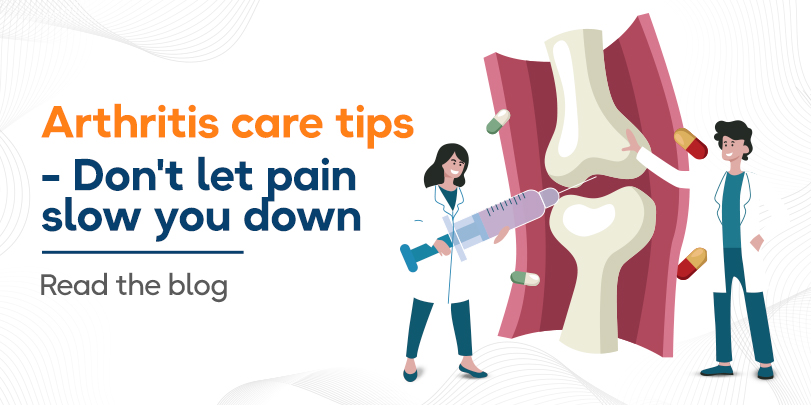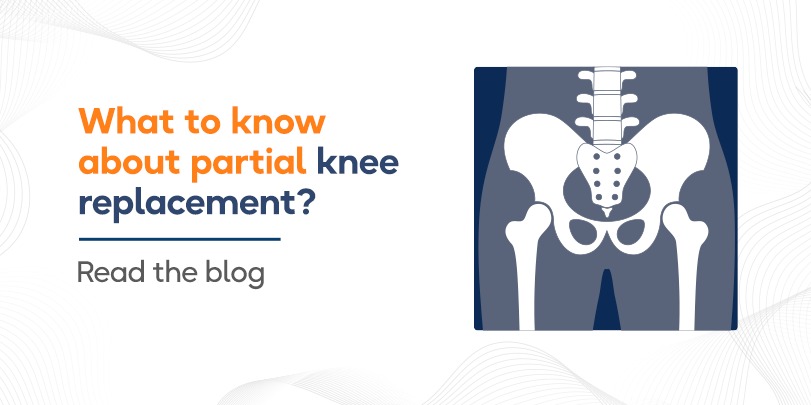When you have arthritis, the pain may feel like it is overwhelming on days. At different stages and people with different levels of sensitivities may experience it altogether differently, but we can all agree that living with it is neither easy nor fun.
In fact, let’s be honest: living with arthritis may be gloomy at times. Chronic pain and exhaustion can have an effect on everything from your job and hobbies to your ability to perform the most basic tasks. Arthritis can also increase anxiety, especially if you are already prone to worrying. It’s difficult to predict the future when you’re not even sure you can open a jar of pickles. And mental problems such as depression and anxiety can exacerbate arthritis symptoms, producing a vicious cycle of pain and terror.
While the pain may seem chronic, we have a little list of things you can do for arthritis pain relief to find comfort.
Understanding the disease
First, let’s briefly understand the disease. Arthritis is characterized by swelling and discomfort in one or more joints. The most common symptoms of arthritis are joint pain and stiffness, both of which increase with age. Osteoarthritis (OA) and rheumatoid arthritis (RA) are the most common kinds of arthritis.
Osteoarthritis causes the breakdown of cartilage, which is the firm, slippery substance that covers the ends of bones where they form a joint.
Rheumatoid arthritis is a condition in which the immune system assaults the joints, starting with the joint lining.
Gout is caused by uric acid crystals, which grow when there is too much uric acid in your blood. Other arthritis can be caused by infections or underlying diseases such as psoriasis or lupus.
There is no foolproof strategy to avoid arthritis. However, there are steps you can take to reduce your risk of stiff and painful joints as you age. This is why it is critical to take care of oneself, both physically and psychologically. Unfortunately, self-care may often feel just as overwhelming as your condition, which defeats the purpose.
TIPS!
-
Knowledge is power
Learn everything you can about arthritis, such as the type of arthritis you have and whether any of your joints have already been injured. Enlist the help of one of our expert doctor and get up to date on your condition. Ask for help from your friends and family to help manage your pain. Inform your doctor if your pain worsens.
-
Build a routine!
The foundation to a better life is laid on routines. From regular preventive care to everything else on this list, preventive care will help build disciple. This, in turn, helps keep everything under check and control.
People are creatures of habit, and routines provide a framework and organization that promotes health and wellness. A regimen may significantly enhance your health.
Many people who do not follow a regimen suffer from:
- When there is no regularity, it is common to be concerned about “when will I get it all done?” A lack of good stress management strategies can increase your risk of heart disease and have a bad influence on your overall health.
-
Sleep deprivation.
You may find yourself playing catch-up with yesterday’s to-do list if you don’t have a regular routine at work or at home. If you’re constantly behind on what you should have done the day before, you’re probably also up at night worried about what didn’t get done.
-
Poor eating habits.
If no time is set out for grocery shopping, unhealthy diets- such as consuming a lot of fast food- become the norm. Quick, unhealthy replacements take over as the greatest meal option.
-
Compromise in exercise
-
Inefficient use of time.
When you don’t have a routine, you often run out of time, leaving tasks undone and not making the most of your time.
Routines may be enjoyable and do not have to be monotonous. Their health advantages will have you wondering why you didn’t begin one sooner! A regimen can benefit in the following ways:
-
Reduced stress
This leads to better mental health, more time to relax, and less anxiety.
-
Better sleep
This will leave you feeling rejuvenated. Your everyday schedule has an impact on your sleep quality. Your sleep pattern and nighttime routine have an impact on your brain sharpness, performance, emotional well-being, and energy level. It is preferable if you can keep a consistent schedule for getting up and going to bed.
-
Better health
Better health may be obtained with a little more forethought. Set your alarm a bit earlier, and you’ll have time to exercise and eat breakfast, which will feed your body for the day. Even a brief and nutritious meal will get you going in the morning. It’s crucial to find time for exercise, whether you enjoy going for a run or going to the gym for a more intense workout.
-
Move it!
When your arthritis hurts, exercise may be the last thing on your mind. However, several studies demonstrate that physical activity is one of the most effective strategies to improve your quality of life.
Exercise gives you more energy. It can also assist to strengthen your muscles and bones while also keeping your joints flexible. To create stronger muscles, try resistance training.
Your muscles protect and support arthritis-affected joints. Aerobic activities will help you burn calories and reduce weight. Keeping a healthy weight reduces the strain on sore joints. Of course, if you’re having a significant flare-up, you should avoid exercising until the pain lessens.
Exercise can assist you if you have arthritis:
Current recommendations is to build a suitable workout regimen. Exercising with a trainer or another individual may be particularly useful since it boosts motivation.
Low-impact workouts to consider:
- Swimming,
- Walking,
- Cycling,
- Tai Chi
-
Balance your diet!
According to research, a range of minerals may help alleviate arthritic symptoms.
Vitamin C-rich foods, particularly fruits and vegetables, may be beneficial.
Omega-3 fatty acids, which are present in fish and fish oil, may also aid in pain relief.
Polyunsaturated fats include omega-3 fatty acids. They offer a variety of advantages, including the ability to reduce inflammation in the body. Omega-3 fatty acids have also been demonstrated in studies to lower RA activity in the joints. Wild-caught fish is typically preferred over farmed fish.
If you’re a vegetarian or vegan, consider these non-fish omega-3 sources:
- Walnuts, flaxseeds, and chia seeds are examples of nuts and seeds.
- Soybean, canola, and flaxseed oils are examples of plant oils.
- eggs fortified, liquids fortified, and soy beverages
Omega-3 supplements come in a range of dosages. They are obtained from several sources, including:
- fish oil
- krill oil
- cod liver oil
- algae oil, for vegetarians and vegans
Experts advise focusing on whole foods rather than specific nutrients.
A balanced diet will provide you with all of the nutrients you require. Include lots of fruits and vegetables, nutritious grains, low-fat dairy, seafood, and lean meats like turkey and pork tenderloin in your meal. Choose good fats, such as nuts and avocados, as well as healthy oils, such as olive and canola oil.
-
Avoid injuries
Your joints may begin to wear down gradually over time. When you hurt your joints, such as while playing sports or in an accident, you might damage the cartilage and cause it to wear out faster.
Within 10 to 15 years, almost half of patients who tear their anterior cruciate ligament (ACL) have X-ray evidence of knee OA. Even patients who have had surgery to repair an ACL injury are at risk.
Warm up before participating in sports and wear the correct safety equipment to avoid injury. Wear knee, wrist, and elbow protectors, as well as shoes that are comfortable and supportive. Check out this list of the finest walking and running shoes for persons with knee osteoarthritis.
-
Rest well.
A restful night’s sleep will assist you in dealing with the pain and stress of arthritis. To improve your sleep, consider going to bed at the same time every night. Remove any distractions from your bedroom, including television and laptops. If you’re having trouble sleeping due of arthritis, consider using pillows to relieve pressure on sore joints. Consult your doctor if you have regular sleep issues.
-
Use either hot or cold packs.
Hot compresses can relieve pain and stiffness by boosting blood flow. Taking a lengthy, warm shower or bath in the morning to help relieve stiffness and using an electric blanket or wet heating pad to lessen discomfort overnight are two heat therapies. Capsaicin, derived from chilly peppers, is a component of certain over-the-counter topical ointments and lotions. These items produce warmth, which can help to relieve joint discomfort.
Cold therapies can aid in the relief of joint discomfort, edoema, and inflammation. Swelling is reduced by cold compresses. Wrap a towel over a gel ice pack or a bag of frozen veggies and apply it to hurting joints for immediate relief. Never put ice straight on your skin.
CONCLUSION:
The smallest of things can make a world of difference is your experience with arthritis pain. Make sure you are living your best life, with or without the illness.
We at Radiance Hospitals care about you and want you to receive only the best care that will last a lifetime. Our specialists are qualified professionals that know just what to do for you. They will lead you through everything and provide ongoing help so you are never left in the dark.
So come on down for a consultation. Remember, you are never alone with Radiance Hospitals.









